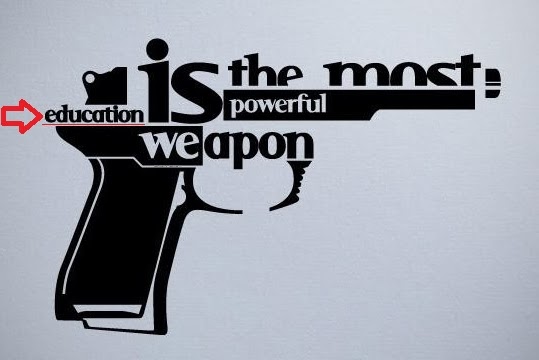I never thought I was going to be
a teacher; in fact I did not want to be a teacher at all, however, a major in
language teaching had to do with something I really love, languages, but not
teaching; so the story of how I got into teaching is more of an accident than
anything else; I’ll explain why.
After having financial problems
to continue studying at medical school, I had nowhere to go. Accidentally, I
came across Luis Amigó webpage and found that this school offered a major in
English teaching. I read everything about it and I got interested. Two months
later I was studying at Luis Amigó University to become a language teacher.
At the beginning it was an
accident (I define accident as those situations that make you wonder why some
things happen in life), but now that I have been able to explore and experience
many things in life through this beautiful profession, I am able to say that
this accident, from all perspectives, has made a great change in my life.
For example, initially I thought that
language (in this case English) served to achieve things (get a good job, get
paid well, you are smarter if you speak more than one language, etc.), my
reduced mentality at this point could only see that, nothing went beyond this
diminished outlook. Now that I’ve lived so many great experiences, that I have
learnt so much from my Professors, classmates and students, I can tell that
languages are more than just channels through the ones we obtain those types of
things I was telling you about. Now, my perspective towards languages has
evolved. I see them as part of our identity (no matter where we come from), I
see them as ways to express our knowledge and feelings, share our thoughts and our
ways of how we in our particular contexts perceive and understand reality, a
possibility to understand other people’s concerns and difficulties, and even
more important, I now see languages and education as great instruments through
the ones I can change the lives of others, just as in the same way my
Professors, colleagues and students have changed mine.
That’s why I believe in the power
of education. I have experienced it myself and my belief has become so strong
that I decided to adopt it as a life style. Yes, I know it may sound ambitious,
but if I want to do something different, I have to look at things in no
ordinary ways. I find in this great opportunity (education), the chance to veer
towards the opening of change, a change that would help bring to our contexts,
to our communities, justice, equity, acceptance, freedom, love, etc. In this
way, having students learn about prescribed plans might be important (at least
for some people), but more important, as educators, is to be facilitators of
students’ personal growth, a growth that later will allow them to make the
pertinent decisions about the path they would like to follow as active and responsible
members of society. As human, I know that my drop of sand won’t make the world
turn upside down, but as an educator, I know I am going to do my best to help
bring a little change to the lives of my students.
- Especial thanks to my Professor Liliana Maturana and her course “Fundamentos de Ingles 3” for allowing me see teaching differently, for helping me become a better professional, a better person.





